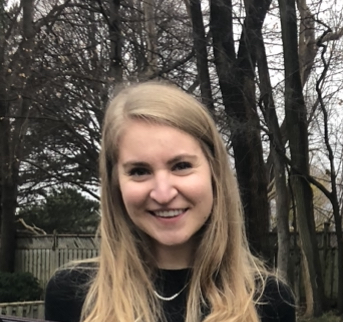Kyla Pyndiura

Kyla Pyndiura
2023 3MT Finalist
Kinesiology
Tell us a bit about yourself.
I am a third-year PhD student in Exercise Science at the Faculty of Kinesiology and Physical Education. I completed my Master of Science and Bachelor of Kinesiology at the University of Toronto.
After sustaining a number of concussions while involved in sports throughout childhood, I became fascinated by the area of concussion research, which fuelled my academic pursuits. For my master’s, I examined the effects of concussion on the autonomic nervous system using 24-hour heart rate variability between athletes with concussion, athletes with musculoskeletal injuries, and healthy athletes. I have been studying and working in the Centre for Sport-Related Concussion Research, Innovation, and Knowledge under the supervision of Dr. Michael Hutchison since my second year of university.
Researching a complex topic like concussion has exposed me to opportunities to lead clinical research projects studying athletes, utilizing novel physiological tools, and assisting with a project that led to the creation of a U of T Health Tech startup.
What are you researching?
For my PhD, I am developing, evaluating, and implementing a functional test that combines all domains that are potentially compromised following a concussion. Thus, a four-stage functional test for concussion (FTC) was created that progresses in complexity by adding a new component at each stage: 1) cardiovascular load, 2) head acceleration, 3) cognitive tasks, and 4) coordination.
One key component of test development is test-retest reliability so, for my first study, healthy university athletes complete the FTC twice to evaluate whether performance between two time-points is similar. In my second study, university athletes with concussion complete the FTC at 1-, 2-, 3-, 4-, 6-, and 8-weeks post-injury to determine test validity and if FTC aligns with physicians’ medical clearance decisions. My third study is examining the prognostic utility of the FTC, where FTC responses (symptom, performance, and physiological [heart rate] variables) will be inputted into analytical models to determine if length of recovery can be accurately predicted.
What impact do you hope to have on your field and / or your community?
My goal is to help elevate the medical care available for individuals who suffer a concussion. One of the biggest challenges with concussion management and final medical clearance decisions is the lack of a universal assessment measure across all populations. (Presently, in our medical system in Canada, many physicians rely mainly on patients’ subjective symptoms for the determination of recovery.) I hope that my research will provide a test that is widely accessible, economical, and easy to implement to assist physicians in prescribing appropriate concussion rehabilitation, tracking recovery progress, and in determining if individuals are physiologically ready to receive medical clearance. Additionally, I hope that I can educate various populations about the injury of concussion and assist in improving Canadian concussion research.
How has the 3MT helped you with your professional development?
The 3MT competition has challenged me to improve and refine how I communicate my research. In a research lab, you’re often surrounded by people familiar with your work. But communicating to a general audience has helped solidify the essential and important elements of my research. I have been able to improve my public speaking skills, learn how to keep my presentations concise but informative, and better my work based on constructive feedback at every stage of the competition. As a result of this competition, I am learning how to effectively present scientific research to a public audience, while attempting to keep listeners interested and engaged. Finally, the 3MT has also given me the opportunity to learn about the extraordinary research being undertaken by other U of T graduate students.